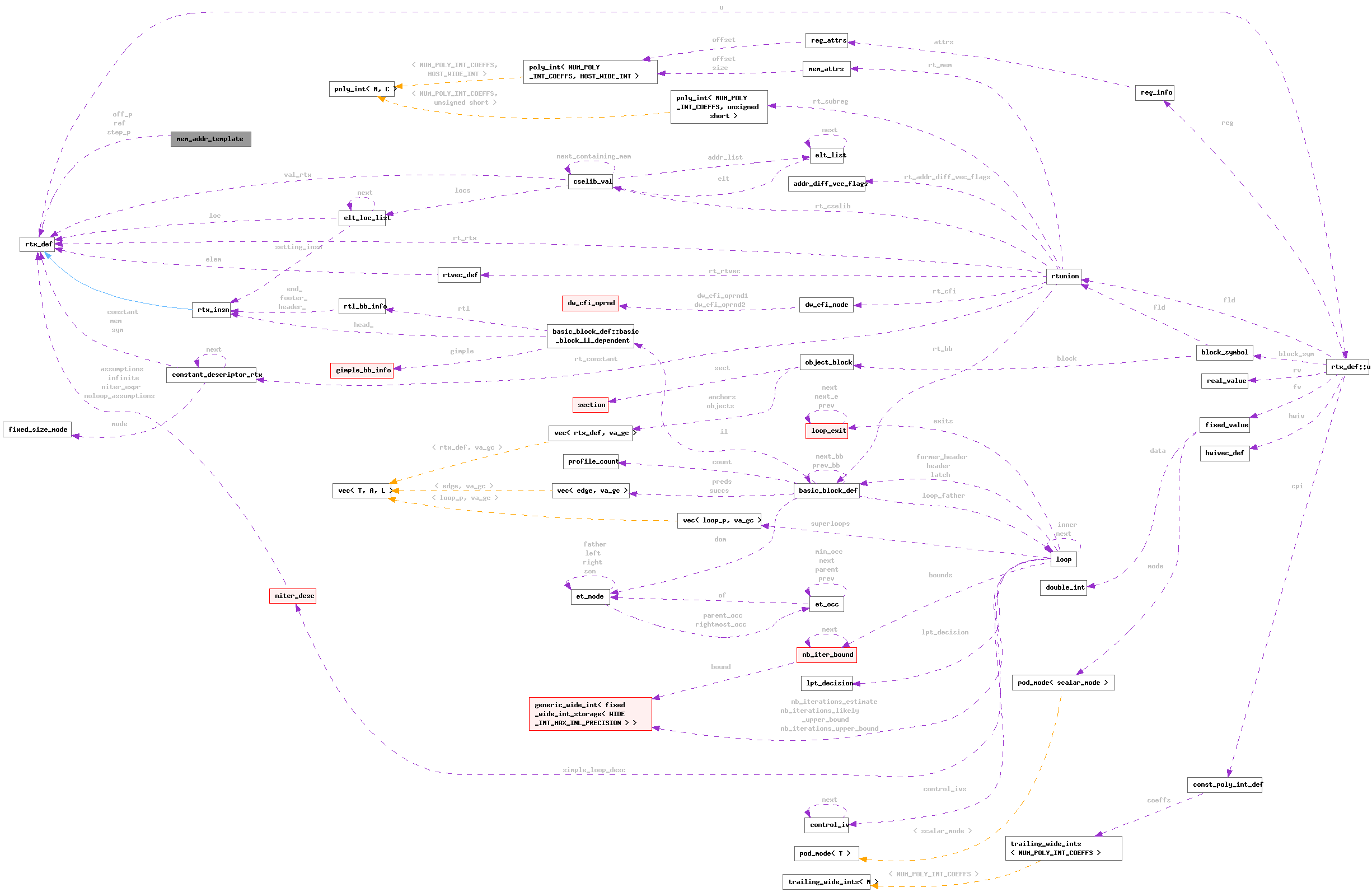mem_addr_template Struct Reference
Collaboration diagram for mem_addr_template:

Data Fields | |
| rtx | ref |
| rtx * | step_p |
| rtx * | off_p |
Detailed Description
Memory address lowering and addressing mode selection. Copyright (C) 2004-2026 Free Software Foundation, Inc. This file is part of GCC. GCC is free software; you can redistribute it and/or modify it under the terms of the GNU General Public License as published by the Free Software Foundation; either version 3, or (at your option) any later version. GCC is distributed in the hope that it will be useful, but WITHOUT ANY WARRANTY; without even the implied warranty of MERCHANTABILITY or FITNESS FOR A PARTICULAR PURPOSE. See the GNU General Public License for more details. You should have received a copy of the GNU General Public License along with GCC; see the file COPYING3. If not see <http://www.gnu.org/licenses/>.
Utility functions for manipulation with TARGET_MEM_REFs -- tree expressions that directly map to addressing modes of the target.
FIXME: We compute address costs using RTL.
TODO -- handling of symbols (according to Richard Hendersons
comments, http://gcc.gnu.org/ml/gcc-patches/2005-04/msg00949.html):
There are at least 5 different kinds of symbols that we can run up against:
(1) binds_local_p, small data area.
(2) binds_local_p, eg local statics
(3) !binds_local_p, eg global variables
(4) thread local, local_exec
(5) thread local, !local_exec
Now, (1) won't appear often in an array context, but it certainly can.
All you have to do is set -GN high enough, or explicitly mark any
random object __attribute__((section (".sdata"))).
All of these affect whether or not a symbol is in fact a valid address.
The only one tested here is (3). And that result may very well
be incorrect for (4) or (5).
An incorrect result here does not cause incorrect results out the
back end, because the expander in expr.cc validizes the address. However
it would be nice to improve the handling here in order to produce more
precise results. A "template" for memory address, used to determine whether the address is valid for mode.
Field Documentation
◆ off_p
| rtx* mem_addr_template::off_p |
Referenced by addr_for_mem_ref().
◆ ref
| rtx mem_addr_template::ref |
Referenced by addr_for_mem_ref().
◆ step_p
| rtx* mem_addr_template::step_p |
Referenced by addr_for_mem_ref().
The documentation for this struct was generated from the following file: